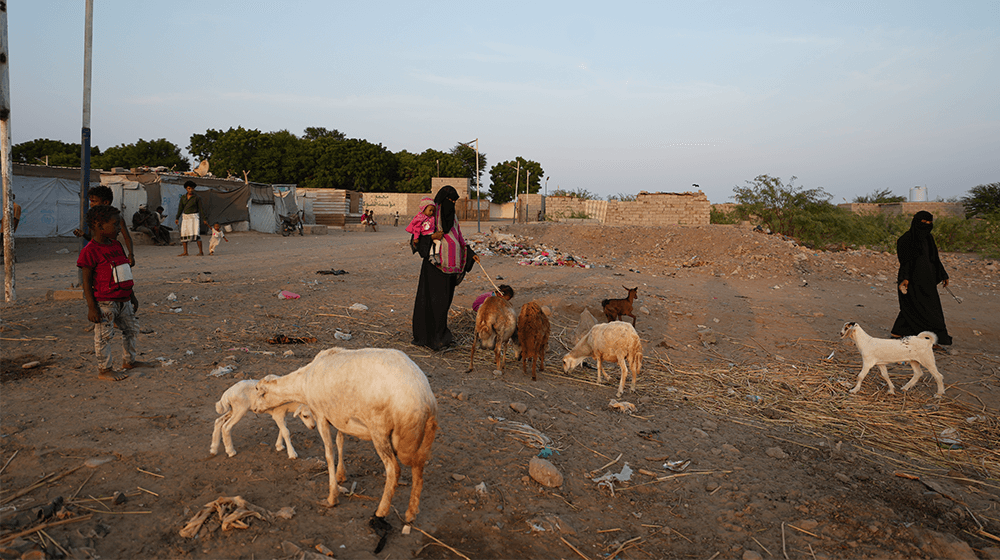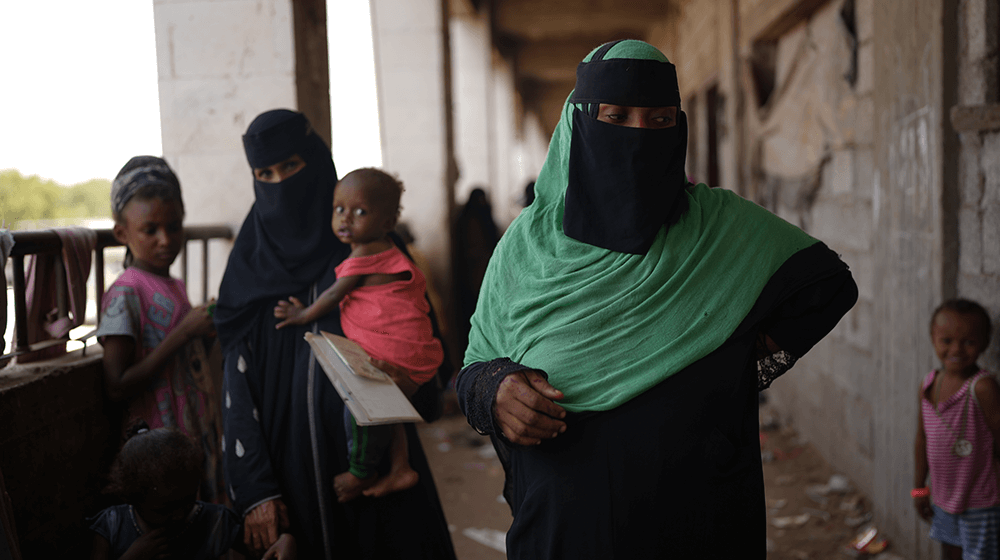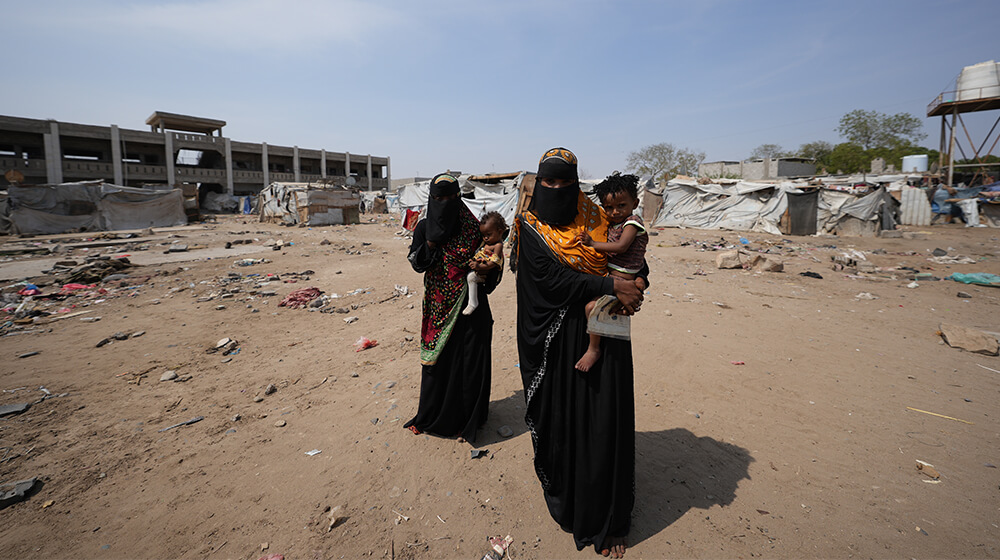The Climate Crisis in Yemen Has a Disproportionate Effect on Women and Girls

Taiz, YEMEN – “One day, when I was returning from fetching water, I collapsed on the road. I was bleeding so badly that I knew I was going to lose my baby.”
Umm was 31 years old and five months pregnant when she sought refuge from the climate crisis in Yemen with her family in a remote displacement camp in Taiz, in Yemen’s southwestern highlands.
Conflict had erupted across the country and a crippling drought took hold, exacerbating the situation for millions of people already fleeing for their lives.
“We hoped to find some peace and safety,” Umm, now 38, explained to UNFPA. “But there was nothing. We had to fight for every drop of water, every morsel of food, and every breath of air. We had to walk miles to fetch water – it was very hard.”
Women and girls face unique issues during conflict
In a humanitarian crisis, women and girls face a litany of dangers, from higher risks of violence and exploitation to forced and child marriage, and diseases and malnutrition. A lack of food, water and health access together with overexertion and high levels of stress mean that pregnancies and births are also fraught with added danger.
“I had four children to take care of,” said Umm. “My husband was trying to earn some money to support us… I was weak and malnourished, and suffered [pregnancy] complications due to lack of proper care and nutrition.”
After she collapsed, Umm was driven to Aden and treated at the Al-Sadaqa Hospital. “They cleaned my uterus and treated me for free,” she said.
Her life – and physical health – were saved, but she was haunted by the pregnancy loss. “I lost my child, and my mental health deteriorated.”

Gender inequality deepens vulnerability
In Yemen, vast and entrenched gender inequalities also mean that the majority of women must stay home to take care of the children and carry out arduous chores.
“I returned to camp [from the hospital], and just days later I had to resume my duties,” Umm said. “I had no choice. I had to fetch water, cook, clean, and take care of my children and my few remaining sheep. I endured pain, sadness, fear and despair… but I had to survive.”
New UNFPA research shows that climate extremes have a disproportionate impact on the mental and physical health of women, girls, and newborns. Yemen is among the 14 countries most vulnerable to climate change.
Extreme weather events ranging from cyclones to droughts to flash flooding have been rising in frequency and ferocity over the past decade. Since the start of the year, the climate crisis in Yemen has displaced over 200,000 people.
For women and girls, the fallout has been wide-ranging and life threatening. For example, to fetch water and firewood, they may have to walk for hours, often unaccompanied, under the burning sun, over treacherous land and in the midst of an active conflict.

The ripple effects of climate change
For many like Umm, it wasn’t always this way.
“I come from a large family of farmers and herders who have lived off the land for generations. We had many sheep and cows, crops and fodder, and a well that provided us with clean water,” she said.
“But then everything changed. The rain became scarce, and we didn’t know when to plant and when to harvest. The crops failed, the well dried up, and the animals starved to death.”
This climate crisis in Yemen is compounded by the country’s brutal war. Yet double disasters of this kind are, unfortunately, not uncommon. “The evidence is clear that climate change does contribute to increased conflict,” notes the United Nations Framework Convention on Climate Change.
“We watched our livelihood disappear. We have never experienced such hardship in our region before. The land became barren, people despaired,” Ms. Mahra said.
Yemen’s conflict has displaced more than 4.5 million people within the country and left over 21 million in need of urgent humanitarian assistance. Meanwhile, the climate crisis in Yemen is only tightening its grip. Millions more lives and livelihoods hang in an increasingly fragile balance.
“I am not the only one here who suffered, there are many like me. We are victims of climate change, war and injustice. We lost everything. We need your help.”